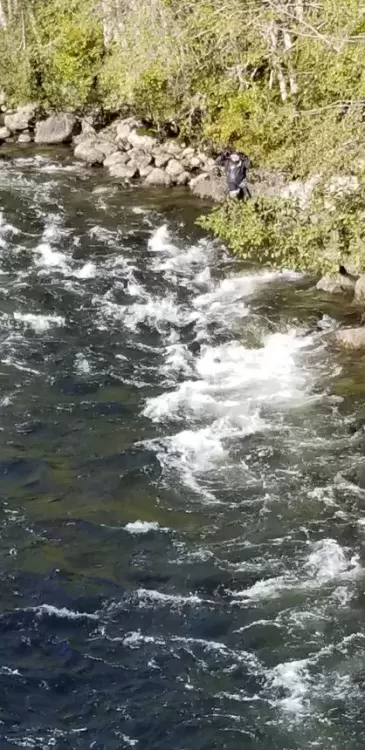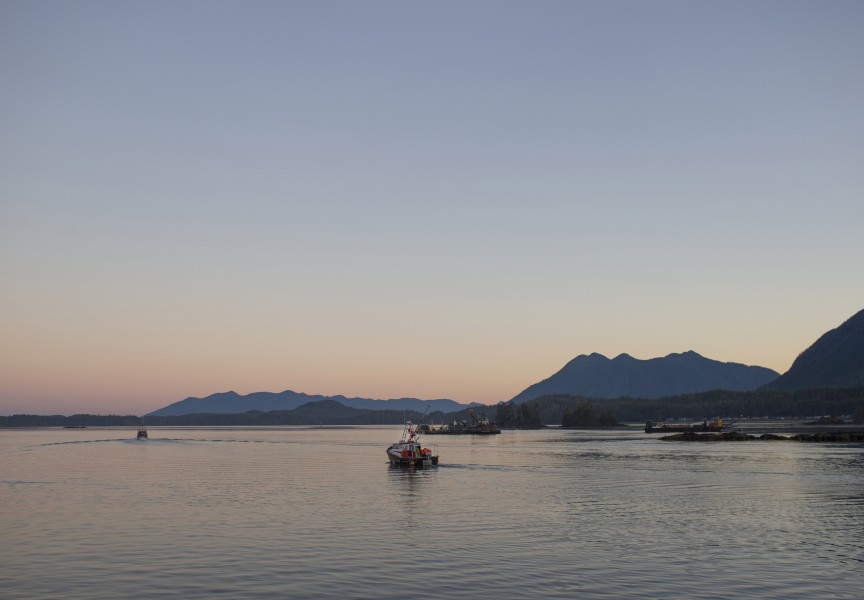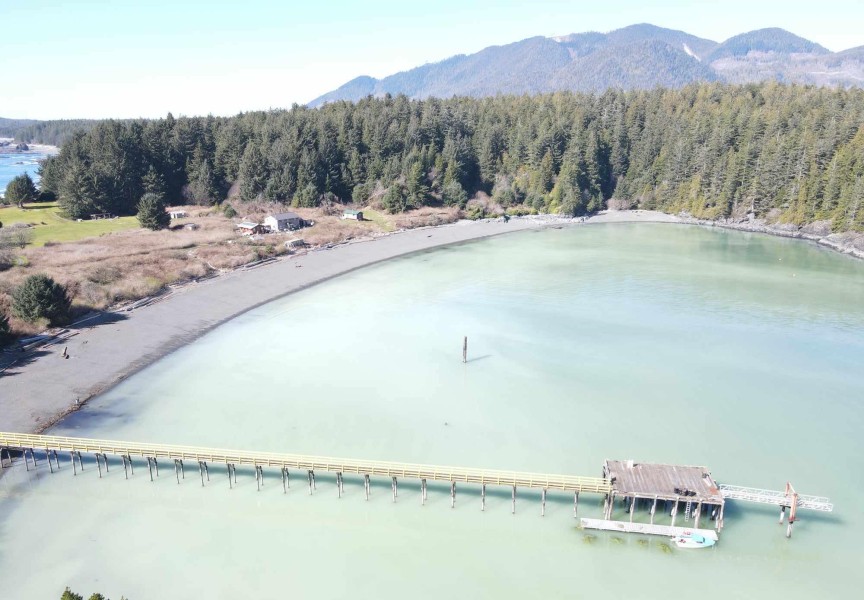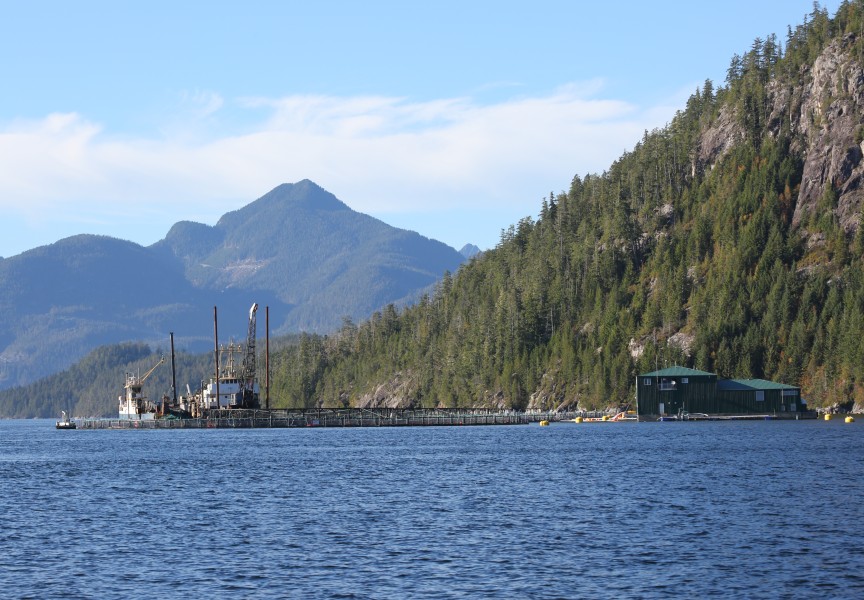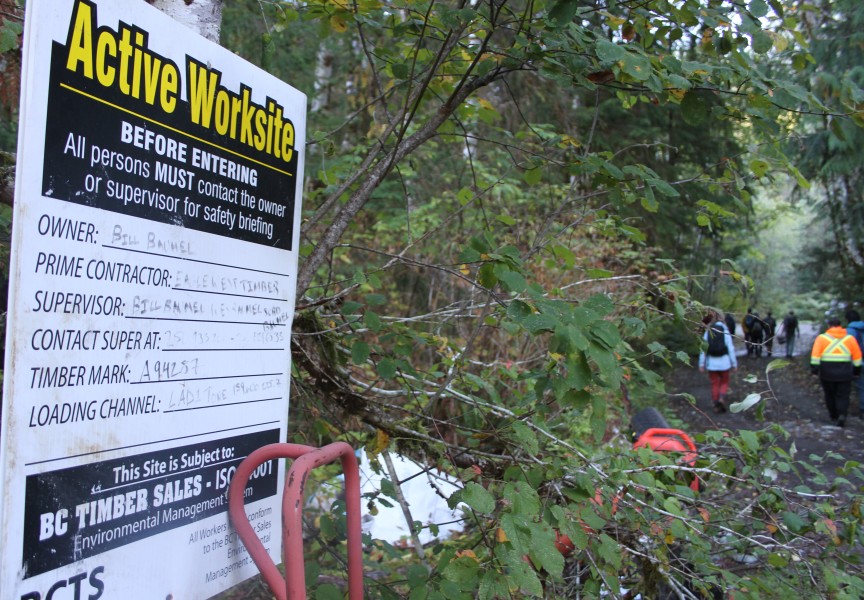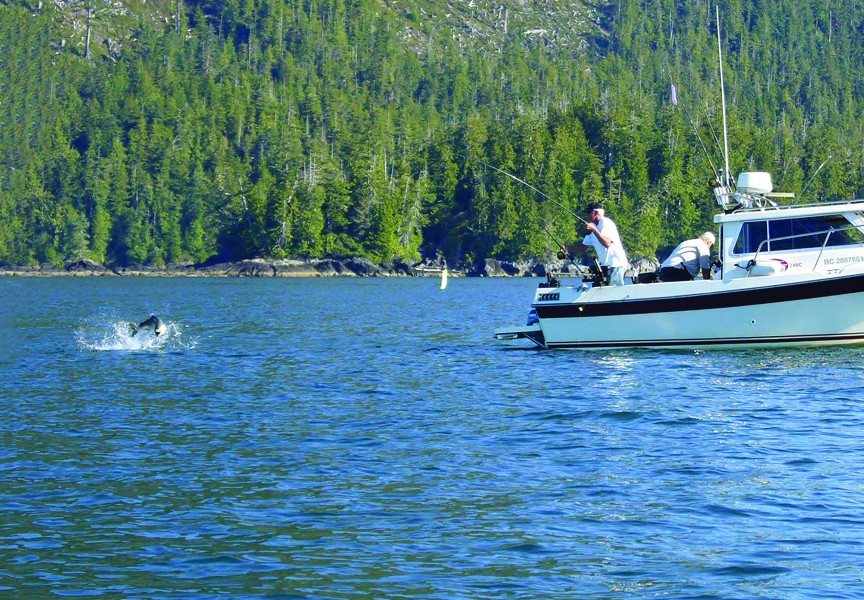The threat of the steelhead’s extinction has forced provincial officials to take the unprecedented step of closing the Gold River and its tributaries for winter angling.
The closure took effect on Dec. 1. The river will be off-limits for fishing until May 31.
But a fisheries official with Mowachaht/Muchalaht First Nation is questioning why this decision from British Columbia representatives was not made sooner.
“I think it should have been done much earlier – the second they noticed a decline in the stock,” said Kadin Snook, who has been the First Nation’s program co-ordinator (his duties include being in charge of fisheries) for the past three years.
Provincial officials have noticed a sharp decline of steelhead in the Gold River during the past five years.
“We’ve gone from thousands to hundreds to possibly even tens of fish,” said Mike McCulloch, a Nanaimo-based fishing specialist for the Ministry of Forest, Lands, Natural Resource Operations and Rural Development. “We can say the number is less than 100. It shows a trajectory that is steep.”
Though provincial officials have only announced winter fishing on the Gold River will be closed until this coming May, McCulloch said in all likelihood fishing will also be prohibited during winter for a few more years as well.
For this season, fishing will be closed on the Gold River downstream of the Muchalaht River, including tributaries. But the closure does not affect those fishing on the Muchalaht River and the Heber River.
McCulloch added provincial officials have teamed up with the BC Conservation Foundation to investigate reasons for the steelhead decline and what measures can be taken to save the fish from extinction. This investigative program, which is a five-year venture, began in 2017. A preliminary report is expected to be completed by Mar. 31, 2019.
The annual winter closure of the Gold River is expected to be one of the recommendations considered after the preliminary report is released.
Government officials realize catch-and-release fishing results in a rather small percentage of the annual mortality for steelhead. But they believe closing the Gold River will help protect the remaining few fish in the river from angling-induced stress and mortality.
McCulloch is hoping to see a positive change in the number of steelhead in five years, which is considered one generation for the fish.
Snook, however, is skeptical.
“I’m not completely confident it will save the stock,” he said of the current closure on the river. “We won’t see any immediate changes.”
Though he would have preferred it was done earlier, Snook does approve of the Gold River closure.
“I would say it’s a pretty good thing,” he said.
Snook added during a recent stock assessment of steelhead in the river only two fish were noticed. But he also said visibility issues during these assessments are always a concern.
“We saw two fish but with our survey models we assume there are about 50 fish,” Snook said.
That is certainly a number which sparks extinction concerns.
“The Gold River run is doing terrible,” Snook said. “It has collapsed. They’ve been on a big collapse for the past few years.”
Snook said other factors, including logging impacts and climate change, also have contributed to the low number of steelhead in the Gold River.
McCulloch said fishermen are in favour of the prohibited winter angling.
“They understand why we need to do this,” he said. “Anglers weren’t surprised. And the locals weren’t surprised with the decline and the closure.”
Besides working with the BC Conservation Foundation, provincial officials will also team up with others, including representatives from First Nations, to determine what can be done to boost fish stocks.

